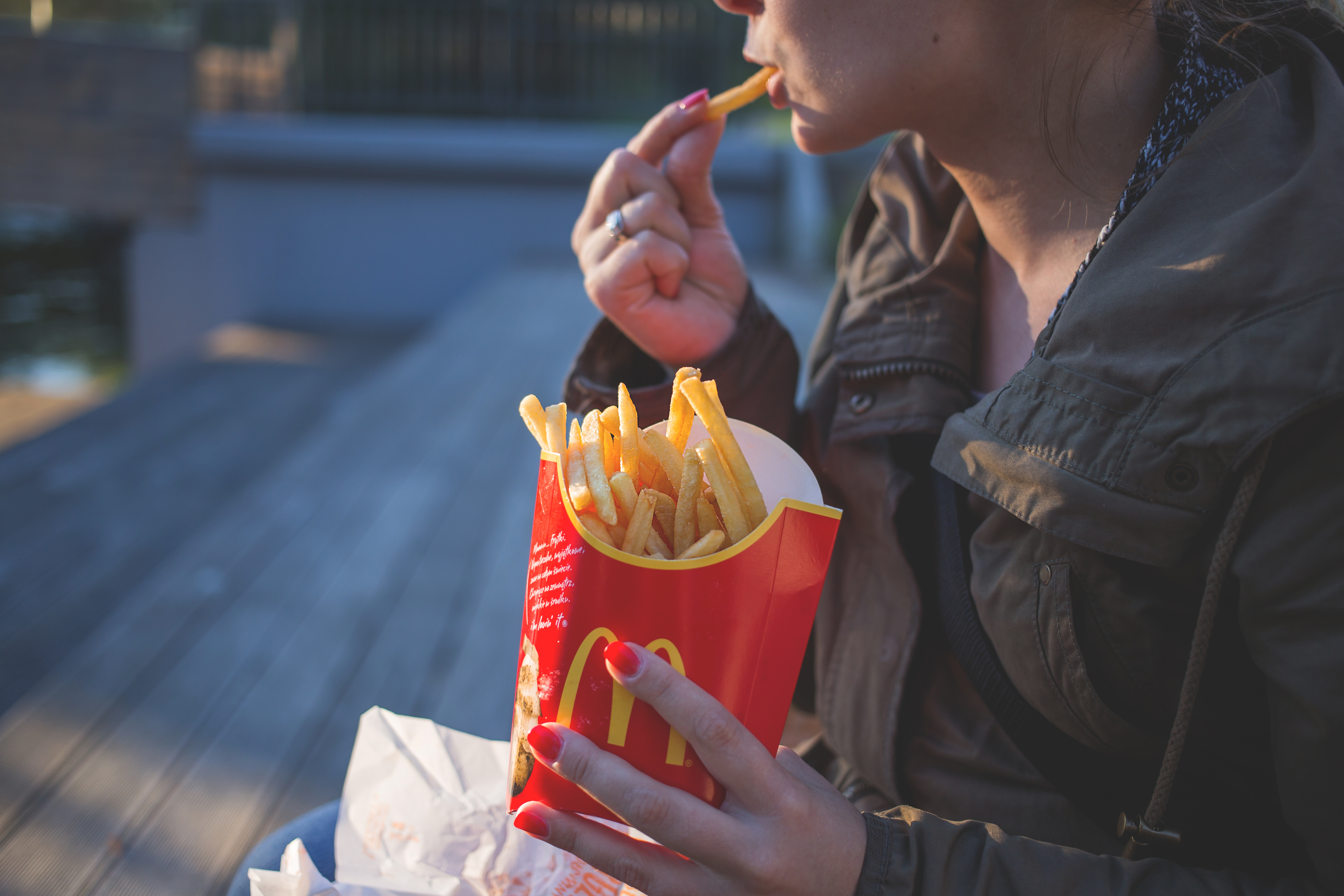Why Sleep Deprivation Makes You Crave Junk Food
February 1, 2018
I hope you enjoy this guest blog post by Selina Hall – Selina Hall is an expert on sleep health and wellness for BestMattressReviews.com. She believes that sleep is one of the most important pillars of health. Selina lives in Portland, Oregon. She sleeps best under a handmade quilt passed down from her great-grandmother.
Sleep deprivation often leads to poor decisions. When you’re sleep deprived, you’re not working at your best. Your body functions differently when you’re sleep deprived, and you may crave foods that aren’t good choices. At the same time, your cognitive abilities decrease, along with your self control, so it’s more difficult to say no and make a better choice.
How Fatigue Tricks Your Body Into Eating Junk Food
When you’re short on sleep, your body doesn’t regulate hormones as it normally does. In fact, hormones related to hunger and satiety are affected. Leptin is known as the satiety hormone, and it tells your brain when it’s full. Ghrelin is known as the hunger hormone, which tells your brain when you’re hungry and should eat.
People who are sleep deprived have greater ghrelin (hungry) production, and reduced leptin (satisfied) production. With these hormones off balance, your brain thinks you’re not satisfied, and you need to eat more whether that’s true or not. This can lead to excessive snacking, larger portions, and choosing junk food.
Self Control and Food Choices
While your hormones struggle to tell you when you should or shouldn’t eat, sleep deprivation makes self control challenging as well. A 2013 Appetite study indicates that those who sleep less than five hours each night are more likely to consume less water, more carbohydrates, and more calories. Those who are sleep deprived are also more likely to eat high carb snacks and do more late night snacking, according to the American Journal of Clinical Nutrition.
How You Can Improve Sleep and Support Good Food Choices
Sleeping a recommended seven to seven and a half hours may not instantly steel your self control and have you reaching for healthy food choices all day, but it can give you the energy and self control you need to avoid fighting with yourself to eat well. When you sleep well, you feel better and are less likely to reach for foods that can offer a quick pick me up and leave you feeling worse just a short while later.
Consider these strategies for improving your sleep and setting yourself up for success in nutrition:
- Make sleep a priority. If you’re focused on living a healthy lifestyle, don’t let sleep become an afterthought. While nutrition and exercise are essential to staying healthy, everything suffers when you’re not getting enough sleep and you’ll struggle to keep up. Build your daily schedule around your sleep needs so you can be sure you’re always making enough time to sleep.
- Track your sleep habits. If you’re already tracking nutrition, it’s easy to add tracking for your sleep right along with it. Keep a sleep journal, noting how long and how well you slept, which hours you slept, and how you felt when you woke up and throughout the day. This can help you examine patterns and identify trouble spots for sleep that you can improve upon. If you combine sleep tracking with nutrition tracking, you may be able to identify trouble foods or eating habits that may cause poor sleep, such as coffee or heavy meals just before bed.
- Sleep in a healthy environment. With a healthy sleep environment, you can rest easier and avoid interferences that can make it difficult to sleep. You should have a comfortable, supportive mattress that helps you feel well rested. Your bedroom should be kept at a cool temperature without interference from light or noise.
Need more accountability with your healthy habits? Consider working with Laura!
Subscribe to our newsletter
Get seasonal recipes, new trends in food and fitness, and dietitian jokes. There’s no spam, and you can unsubscribe at any time.


